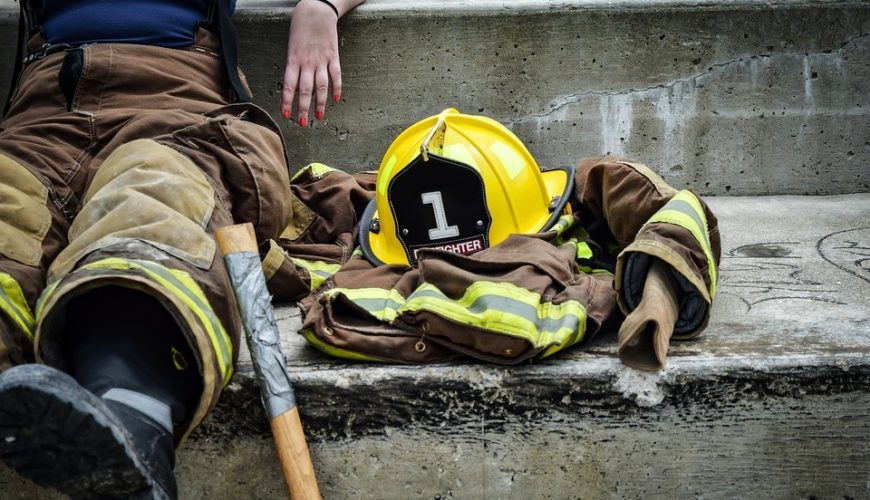Firefighting has always been an occupation fit only for the brave. In the firefighting community in America today, we face unprecedented new challenges. There is no escaping the reality that the fire situation is getting worse, particularly for firefighters on the ground.
Firefighters are increasingly being asked to cover more areas of expertise in more complex fire environments. Many fire departments are now required to cover Advanced Life Support incidents if they want to have any chance of competing with private ambulance companies. Although firefighter positions continue to grow in the structure fire community, the situation in wildland firefighting is dire.
The majority of the elite, Type 1 wildland firefighters work for a Federal agency – mostly the Park Service, Forest Service, or Bureau of Land Management. Some other crews work for various state agencies, or for smaller agencies such as Fish and Wildlife. In an environment where the Federal government is constantly looking to reduce spending, programs like the Forest Service and Park Service often find themselves on the chopping block.

As a result, each year there are fewer positions. The positions that do still exist are forced to deal with an ever-increasing workload. This means longer work hours and longer seasons. In addition, population density in the country is on the rise, which means more fire-protected areas with a more complex wildland-urban interface. Wildland firefighting crews are now expected to be able to be cross-competent in the structure fire, structure protection, and emergency medical services. On top of that, fire weather continues to change for the worse.
Lighter crews, longer hours, and an increase in fire activity means a greater burden for the remaining firefighters.
Carrying this stress around day-to-day has a highly adverse effect on the body and mind. Over time, stress causes high blood pressure, exhaustion, and can lead to digestive issues. Stressed-out firefighters are also more likely to engage in risky behaviors such as alcohol abuse and are about 50% more likely to develop an emotional disorder such as depression. A severely, habitually stressed firefighter is also a less effective firefighter – slower, more emotional, more easily fatigued, more likely to “break down”.

Stress can be thought of as a heavy boulder that a firefighter must carry around, in addition to all their normal gear. It’s an extra weight that drags you down, preoccupying your mind and exhausting you faster. However, by sharing this load with others, you can chip off pieces and make it manageable to carry. The best resource is often another firefighter. We understand what our brethren go through, and are often able to communicate on a level that non-firefighters are not. Don’t be afraid to open up to a friend – it doesn’t make you weaker. Often, just bringing what you’re feeling out into the open can dramatically change your mood. You may find your troubles evaporating or seeming much more manageable even after a short talk. Debriefs and AARs are a good time to express something that worried or bothered you during the shift but don’t feel bad if you can’t bring yourself to bring up difficult subjects in front of the entire group. Try to find a trusted supervisor or a buddy later, and bring up your concerns privately.
As firefighters, we are often forced to spend long periods of time away from our family and close friends. The rest of the time, it is crucial that you spend it with them. Being around family, friends, and pets is a great way to decompress. It can be difficult to talk about your experiences on fire, but sometimes just being around them can make you feel better. Structure some time for shared activities, like a hike or dinner. These activities can help you return to normalcy. Try to think back to something that brings you a feeling of true tranquility – it could be a hobby like woodworking or fly fishing, or an activity like driving. Whenever you have time off, try to spend a few hours on this activity. It can be easy to push off slow, contemplative activities like this – there’s always an errand or a chore that needs to be done, or a social event to attend. Nonetheless, these simple joys can greatly reduce your overall stress, so factor them into your off-days.
Many firefighters find great comfort in meditation. Even 10 minutes per day can drastically improve your mood, and it works for both religious and non-religious firefighters. Relaxing your mind and letting go of your emotions and thoughts has a therapeutic effect, and can make you feel more “in control” of your surroundings.

Finally, for those who find themselves problematically stressed and can’t seem to find relief, another great resource is therapy.
Trained health professionals will be able to help you identify to find the source of your anxiety, and help you address it. Just as you would see a sports medicine doctor if you were having physical issues that impacted your work performance, seeing a health professional is a highly effective way to seek a “tune-up” for your mental state. Rest assured – if you put off the problem, it will get worse. Take care of yourself, and you will be better able to take care of your co-workers and the citizens we serve in all 50 states.
MdE has worked with Public Safety for over 20 years. We provide software and services for tracking training and performance which can aid in early intervention. If you or someone you know is interested in more information, contact us at MdE@MdE-Inc.com or call 877-500-5396.


